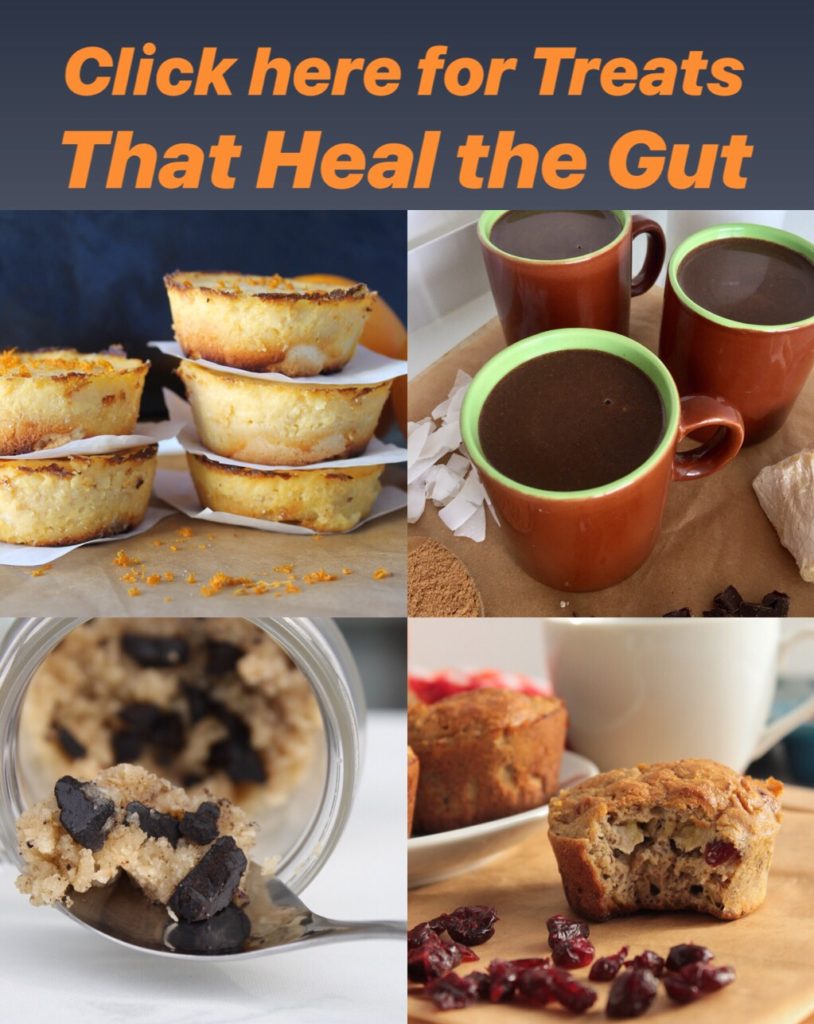Lately I’ve been getting e-mailing asking about the exact steps for healing IBS. This is a huge question, so I decided to answer it with a blog.
Because the causes of IBS are as unique as someone’s personality, there’s no universal formula, but there are some general guidelines that have helped me and others.
If you’re feeling lost, this is a great place to start. Following and addressing each of the steps below can fill in the missing pieces of your current healing strategy.
The steps below are based on my research, interviews with success cases, personal experience, and working with clients. And they’ll need to be tweaked and personalized for maximum efficacy.
If you’re easily overwhelmed, don’t get discouraged by all this information. There’s a lot here, but you don’t have to tackle it all at once. Making small changes over time may be the best and most effective approach.
If you’ve tried many things without success (I felt that way too!), don’t give up hope. To see significant results, you have to address ALL the body’s imbalances. It’s likely that there are more organs and systems involved than your large or small intestine.
Theses steps address the whole body, multiple organs AND the nervous system. The body systems are interconnected, when one breaks down it takes the others with it.
It may seem discouraging how much you have to do to heal. Though they are great fist steps, it often takes more than going gluten/dairy free and taking probitoics to get your body back in balance. But if you give your body the right support and remove the healing blocks, it knows exactly how to repair itself.
And if you’ve already done everything on this list, I’ve added a troubleshooting section for you.
Here is an overview of how to approach digestive healing comprehensively, covering all your bases.
Step 1) Diet: Remove food allergens and inflammatory, gut irritating foods
When the body mistakes a food allergen or sensitivity for a threat, it will mount an inflammatory reaction.The body can’t heal if it’s in a constant state of inflammation. Inflammation is part of the body’s immune response, when it’s trying to heal. Inflammation becomes problematic when it’s chronic.
In order to heal, we must calm chronic inflammation. We want our body to be at peace, devoting it’s energy to cleansing and repair, instead of waging an inflammatory war.
Isolating food allergies or sensitivities can be done through medical allergy testing, an elimination diet (take out test foods for several weeks and add in one by one to gauge reaction) or with a food journal to identify triggers over time.
Some foods are generally inflammatory to the gut, like gluten. Grains can also cause inflammation for many people, even gluten free grains. Grains contain anti nutrients like lectins, enzyme inhibitor and phytic acid. They block nutrient absorption of minerals (calcium, magnesium, iron and zinc), compromise gut lining and destabilize blood sugar (which stresses the liver).
Soaking and sprouting grains can neutralize these issues for healthy people, but if you’re serious about healing it’s best to stay away from grains, beans, uncultured dairy and refined sugars. Nuts also contain some of these anti nutrients so either soak them first, or test them to see if they’r problematic.
Grain-free diets are best for rebuilding gut health. I wrote this blog about the different options for grain free diets. These diets remove processed foods, inflammatory oils, refined sugar, beans, alcohol and dairy. Many people seem to react to food additives like carrageenan and annatto, so making your food from scratch can solve that problem.
Grain-free diets are growing in popularity. You can find recipe ideas here and check out these online communities to support your transition. You can also find a ton of diet-based healing stories online, most of the grain-free bloggers have one.
Remember, that just because something is “legal” on a diet doesn’t mean it will agree with you. So use diets as guidelines and your body’s reactions to customize. While honey, maple syrup, dried fruit and chocolate are allowed on some healing grain-free diets, I couldn’t have any of them while healing.
A common tweak for IBS folks, who suffer from SIBO, is removing high FODMAP foods. This will limit your diet further, but as you heal you’ll be able to add more and more food in. Here’s a blog I wrote about grain-free low FODMAP food ideas.
Another tweak for people with autoimmune conditions is removing night shade foods like white potatoes, peppers, tomatoes and eggplant.
A grain-free diet will also support your body’s repair in step 2, 3 and 4 ( intestinal lining, bacterial balance and liver detox).
If you’re not familiar with my story, the Paleo diet brought me back to health after (being strict) for one year. You can read my story here.
Step 2) Balance your digestive bacteria
I believe that most people with IBS have some sort of bacterial imbalance (also called gut dysbiosis).
Probiotic foods and supplements can help and have hit the mainstream. While this is wonderful, there’s still a lot of confusion about bacterial imbalance. It takes more to balance gut bacteria than taking a probiotic supplement.
Eating right (step 1), managing stress (step 5) and removing non essential bacterial killing medications is an important part of rebuilding healthy gut bacteria. If you don’t know about the harmful side effects of medication on bacteria, here’s a scientific study about the effects of the birth control pill on digestive health.
Probiotic foods are a great option for rebuilding intestinal bacteria, and are more powerful than supplements. Fermentation expert Sally Fallon, author of Healing Traditions, says there’s more probiotics in a tablespoon of sauerkraut than in a bottle of probiotic pills.
But in some cases, the wrong type of probiotics may do more harm. Not everyone can tolerate high FODMAP foods like sauerkraut or yogurt. In this instance, carefully selected supplements or home fermented veggies, like green beans or carrots, are better.
People with SIBO have too much bacteria in their body and must be careful with probiotic supplements that contain prebiotics like FOS. This type of fiber can feed bacterial overgrowth.
Kefir is one of the most powerful probiotics out there, and can be made dairy-free, but people with candida infections should be aware that both Kombucha and Kefir, are cultured with yeasts.
So don’t assume all probiotics are good and created equal. It may take some experimenting to find the right ones for you.
Another confusing issue with probiotics is the die off reaction they can produce. When they work too well pathogenic bacteria dies off in mass, creating symptoms that are either flu-like or resemble an IBS episode. Die off reactions are intense and come and go quickly. They will last for several days, not several weeks. People who use oregano oil to kill bad bacteria can experience this type of intense die off reaction, along with a burning pain. Be very careful with oregano oil, it is very strong.
Not all probiotics are the same, so you need to educate yourself and keep checking in to see if you are feeling better or worse in the long term.
People always ask what brands of probiotics I recommend. Personally I don’t take any, opting to do fermented food instead. I give my husband Scdophilus, and I have more recommendations and information about good probiotic brands and fermented foods, here.
Healing bacterial issues can have a miraculous effect on your mood and emotions. Anxiety, depression and serotonin issues have been linked to gut dysbiosis. These symptoms will likely improve as you do.
Step 3) Sealing your gut
This is usually the missing piece for most IBS sufferers. Intestinal permeability (commonly called leaky gut) is an issue for many people who suffer with food allergies. In fact, it’s theorized to be the cause of most food allergies.
Intestinal permeability is what it sounds like. Tiny holes develop in the gut lining, which allow undigested food particles and other pathogens to enter the blood stream, causing an inflammatory response. Healthy gut lining prevents this from happening, but when the barrier breaks down, it causes problems for the immune system and the liver, which must filter extra toxins from the blood.
Left unchecked, leaky gut is theorized to eventually lead to chronic autoimmune conditions like arthritis, chronic fatigue, hashimotos thyroiditis and celiac.
While there are no reliable tests to check for leaky gut, multiple food sensitivities, fatigue, malnutrition and immune issues (overreaction to bug bites, skin rashes, getting sick easily) are tell tale signs of leaky gut.
The causes of leaky gut are many. They include a high sugar diet, chronic stress, drinking alcohol, pain relievers with aspirin or acetaminophen, gut dysbiosis, deficiency in zinc, gluten allergy and chronic gut inflammation.
Here’s an example of how the body interconnects: Eating gluten can block the absorption of zinc, inflame the gut and feed bad bacteria, causing junctions in the gut to open and creating opportunity for more food allergies to develop.
Because gut dysbiosis is thought to be one of the causes of leaky gut, balancing intestinal bacteria will support the healing of the intestinal lining.
To heal leaky gut you must follow step 1 and 2 above, (low irritant , high probiotic diet) but most importantly you must add daily servings of bone broth and/or gelatin to your diet.
Bone broth is like spackle that will seal tiny holes in the gut. It also provides easy to assimilate mineral and amino acids needed for gut repair and nutrition.
If you want a more detailed approach to healing leaky gut, including supplements and other details, read the blog I wrote about healing my husband’s leaky gut.
Step 4) Detox the liver
The liver is probably the least discussed topic in digestive health.
The liver regulates metabolism and hormones, filters blood, and help digest fats, among many other things.
But if your liver is unhappy, the rest of your body will feel the effects. Constipation, premenstrual syndrome, and inability to digest fats are some of the symptoms of an unhappy liver.
When people think about healing the liver, they think of crazy cleanses like drinking olive oil or doing coffee enemas. Most liver cleanses are way too intense and will freak your liver out. Gentle cleansing is the way to go.
Filtered drinking water with lemon juice, upping your intake of greens like spinach, and getting lots of rest is one of the best ways to cleanse your liver gently. But don’t overdo it.
Other important ways to cleanse the liver is to not eat after 7 pm, keep blood sugar stable with a grain-free, low sugar diet, and avoid toxins like chemicals, harsh cleaning agents, and preservatives in foods. Also, reducing all non essential medications is extremely supportive for the liver.
From a Chinese medical point of view, constant activity and angry emotions greatly irritate the liver. Finding ways to slow down, destress and process your emotions will benefit the liver far more than any cleanse. Cleanses can actually stress and overwhelm the system as toxins are stirred up, which will leave you feeling awful.
Healing leaky gut (step 3) with lots of bone broth will also support the liver, by preventing excess toxins from flooding the blood stream. Remember, taking good care of one organ, will take care of another.
There are herbs that support the liver, but I always advise working with a skilled practitioner when taking supplements.
If you want to take a safe and gentle DIY approach, I recommend drinking dandelion tea, sprinkling turmeric or grating burdock root over your food or eating an artichoke.
And remember, rest is the liver’s best friend, which brings me to the next topic.
Step 5) Sooth the nervous system
Chronic stress causes the adrenal glands to release cortisol. And high cortisol levels compromise digestion. When cortisol is high, the body prepares for combat, shutting off non essential functions, like digestion. The body’s resources are now focused on responding to threats.
When we are chronically stressed, the constant release of cortisol can do damage to the body in two ways.
It can destabilize blood sugar, which will irritate the liver, causing it to store fat and making it sluggish. It can also exhaust your adrenal glands, which produce cortisol. This is called adrenal fatigue and it can wreak havoc on gastrointestinal function.
Adrenal fatigue will challenge the immune system, increase reactivity to allergens and inflammation, throw off sex hormones, and mess with the conversion of fat and protein into energy. It will also cause cravings for sugar, carbs and sometimes salt.
The symptoms of adrenal fatigue can be intense. The primary symptom is low energy, especially in the morning, and at night feeling wired before bed and having trouble sleeping.
Adrenals can become fatigued from doing too much and expecting too much of yourself (being a perfectionist). Even if you don’t feel stressed, constant activity and worry will deplete not only your adrenal function but also your liver.
Stress and overwhelm, can turn you into a pressure cooker, and if the pressure is not released, it will poke holes in your gut, kill your beneficial bacteria, destabilize blood sugar, deplete adrenals and compromise the liver.
Because it’s often impossible to control stressor in life or our reactions to them, it’s best to build in daily stress release. To release stress you must calm the nervous system. Watching TV doesn’t count as stress relief because your nervous system is still being stimulated.
To truly rest, you must switch your nervous system from fight or flight mode (sympathetic state) into rest and digest mode (parasympathetic state). That means your nervous system needs to stop firing and reacting and just let go.
This is challenging to do. I’m not that great at relaxing myself. I tend to go go go and think too much. What works for me is a guided meditation done laying on the floor. It’s called yoga nidra, and I write about it here. Acupuncture also works. And practicing chi gong or tai chi is quite effective.
If that doesn’t resonate, there are other ways to calm down. If you get lost in painting, singing or spending time in nature, you should do it daily. The more fun and enjoyable the activity is, the better. If you stress about resisting meditation, but feel like you should do it, it’s completely counterintuitive. Do something you enjoy or something that soothes you instead.
Remember the pressure cooker analogy, you have to release steam daily to let your nervous system regenerate. This is when the deepest healing happens. It’s just as important as diet, supplements and bone broth. But for us perfectionistic, anxiety types, this is often hardest to do.
Trouble shooting
If you’re consistently doing all the steps above and not getting results after 2 months, it’s a sign to dig deeper.
If you have a gut infection or parasite, the body won’t heal until the infection is cleared up. Find a lab that specializes in parasite testing. Often, standard medical parasite tests can miss an infection.
Also, test yourself for SIBO (breath test), h pylori, candida (stool test) and heavy metal toxicity (hair sample test).
And get your thyroid checked out.
Explore the possibility of low stomach acid, especially if heartburn or GERD is an issue. Learn more about this here.
Also, emotional trauma can be a cause of IBS. If you experienced severe trauma before your illness, explore some body-centered therapies to release stored trauma. Some options are hypnosis, EMDR or Somatic experiencing therapy (I highly recommend this one). You can also explore body work like Trauma Touch therapy, Aston therapy or cranial sacral.
Attitude, emotions and mindset
Of course your attitude, mindset and emotions about healing play a major role.
While the steps above are the road map, your mindset dictates the quality of your journey! Are you moving forward or are you slowing yourself down with detours?
You must be ready and in line with your goals to see the best progress. And next week, I’ll write about the attitude traps that keep us unwittingly stuck.
My secret to healing was prioritizing it. It came first.
I accepted my body’s limitations and didn’t try to live the life my friends were living. I knew I needed to focus on getting better first, then I can play and enjoy myself later. And I have!
I was willing to do whatever it took to get better. I sacrificed a year of my life following a strict diet with lots of rules (which is counter to my personality). It was not easy, but so worth it.
I believe healing is possible for anyone, but it’s also loaded with intense challenges.
Sometimes healing means changing the thing you refuse to change. Sometimes it means learning something about yourself that you want to deny. Often it means getting more in touch with your body. These are all amazing things if you’re up for the challenge.
I know it’s not an easy journey, but your health challenges can be your best teacher in life.
I know this is a lot to digest, just let it slowly sink it. This is an overview.
And if you want to know more, I’ll be going into deeper detail with each step in future blogs.
 Angela Privin is proof that IBS is NOT an incurable disease or a disease at all. IBS is a body out of balance. It’s an invitation for change. After solving her own IBS mystery more than a decade ago Angela trained as a health coach to help others.
Angela Privin is proof that IBS is NOT an incurable disease or a disease at all. IBS is a body out of balance. It’s an invitation for change. After solving her own IBS mystery more than a decade ago Angela trained as a health coach to help others.
Angela uses both science and intuition to help people figure out what’s out of balance in their body. She works with lab tests, dietary changes, supplementation and nervous system rebalancing. Get help rebalancing your digestive system and solving your IBS mystery here.







Pingback: Gut Healing Strategy Part One | Life of a Paleo College Student
Pingback: Gut Healing Strategy Part One | Paleo to the Rescue